UPDATED at 12:40 a.m. EDT on 2022-07-08
The shooting death of former Japanese prime minister Shinzo Abe Friday prompted grief across Asia, but mixed reactions on China's tightly controlled internet, with nationalistic Little Pinks openly celebrating Abe's death and government censors blocking a cryptic hashtag that could be a reference to public anger at the ruling Chinese Communist Party (CCP)'s own leaders.
The news of Abe's death following a shooting by a gunman in Nara during an election campaign made it to the front page of the CCP's official People's Daily newspaper online edition, but as a fairly small headline below a plethora of stories about CCP leader Xi Jinping.
The paper carried a factual news report from state news agency Xinhua in full. However, its Japan channel also carried a Xinhua article about relations with South Korea dated July 6 and titled "From forced labor to 'comfort women,' Japan's human rights misdeeds cannot be denied."
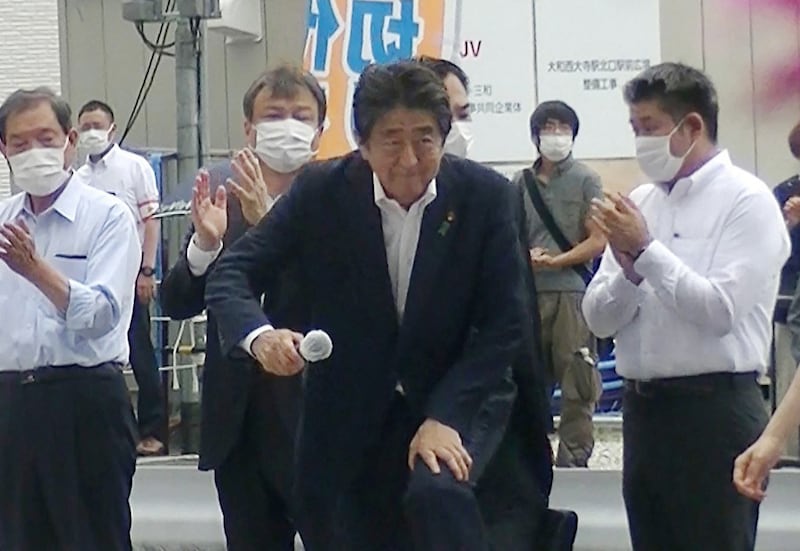
China's nationalistic Global Times newspaper quoted Japanese prime minister Fumio Kishida's reaction, condemning the "barbaric" attack, and Chinese foreign ministry spokesperson Zhao Lijian as saying that China was "shocked" by the incident.
"After Japan's announcement of Abe's death, Chinese Embassy in Japan also mourned Abe's passing and extended condolences to his family," the paper said.
It quoted "analysts" as saying that "Japanese right-wing forces may use this incident to push forward the trend of conservative transformation in Japanese politics ... bringing more security risks to the geopolitics of Northeast Asia."
It quoted Da Zhigang, director of the Institute of Northeast Asian Studies at Heilongjiang Provincial Academy of Social Sciences, as saying that Abe's death could boost nationalistic sentiment in Japan.
"Japanese nationalism is also likely to be further strengthened by the incident," Da said. "People may have concerns about whether the volume of calls in Japan to return to the path of war will increase further."
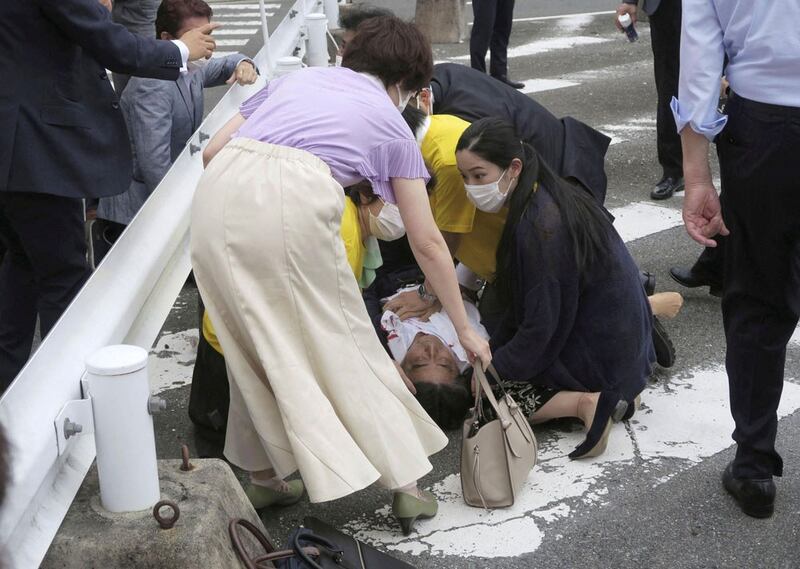
Hateful comments
Some online comments reacting to Abe's death on Chinese social media platforms were nakedly hateful, according to The Great Translation Project Twitter account, which translates and curates social media commentary in China.
"The people of Shaanxi extend our warm congratulations to this," the account translated one comment as saying. Several other comments followed with the exact same wording, but referring to different parts of China.
Meanwhile a hashtag #kexibushini, which translates as "a pity it wasn't you," but could also be read as hinting at the wording "but Xi it wasn't you" in a possible reference to CCP leader Xi Jinping, was blocked on social media platforms.
One comment read: "These censors seem to know [what we mean] better than we do!" while another replied: "It's so funny. Everyone knows."
"Someone is likely getting scared in Zhongnanhai," another comment read, referring to the headquarters of the CCP leadership in Beijing.
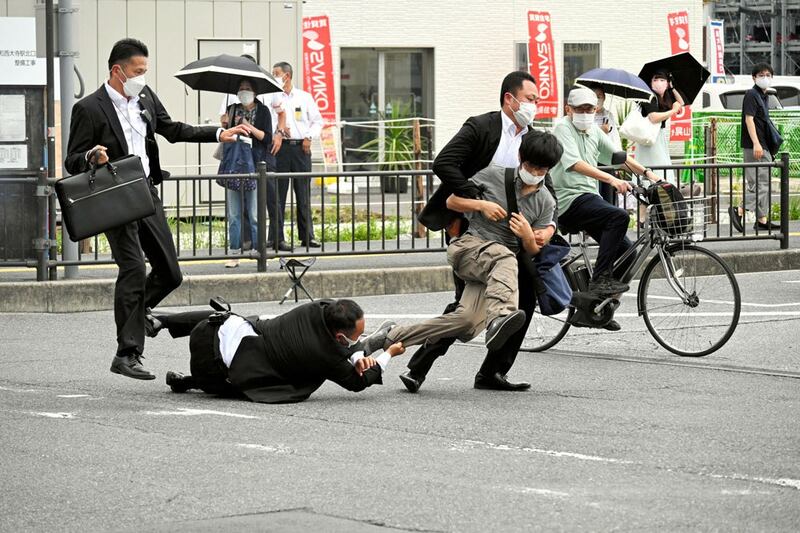
Abe, 67, was shot from behind minutes after he started his speech in Nara, the Associated Press reported.
He was airlifted to a hospital for emergency treatment but was not breathing and his heart had stopped. He was later pronounced dead despite emergency treatment that included massive blood transfusions, the agency quoted hospital officials as saying.
Police arrested the suspected gunman at the scene of the attack, while prime minister Fumio Kishida and his cabinet ministers rushed back to Tokyo to respond to what Kishida called a "dastardly and barbaric" attack.
Sunday's parliamentary elections will go ahead as planned, he said.
Territorial, historical grievances
China and Japan have been at loggerheads over a disputed island chain, visits by Japanese politicians to the Yasukuni shrine, where some Japanese war criminals are interred, and an ongoing war of words over Tokyo's recognition of past military aggression and human rights abuses in East Asia.
In 2012, a tense diplomatic standoff with Japan sparked nationwide protests and anti-Japanese riots over the Senkaku, or Diaoyu, Islands, while China held war drills in waters near Japan after then opposition leader Shinzo Abe visited the controversial Yasukuni shrine in Tokyo which honors Japan's war dead, including Class A war criminals.
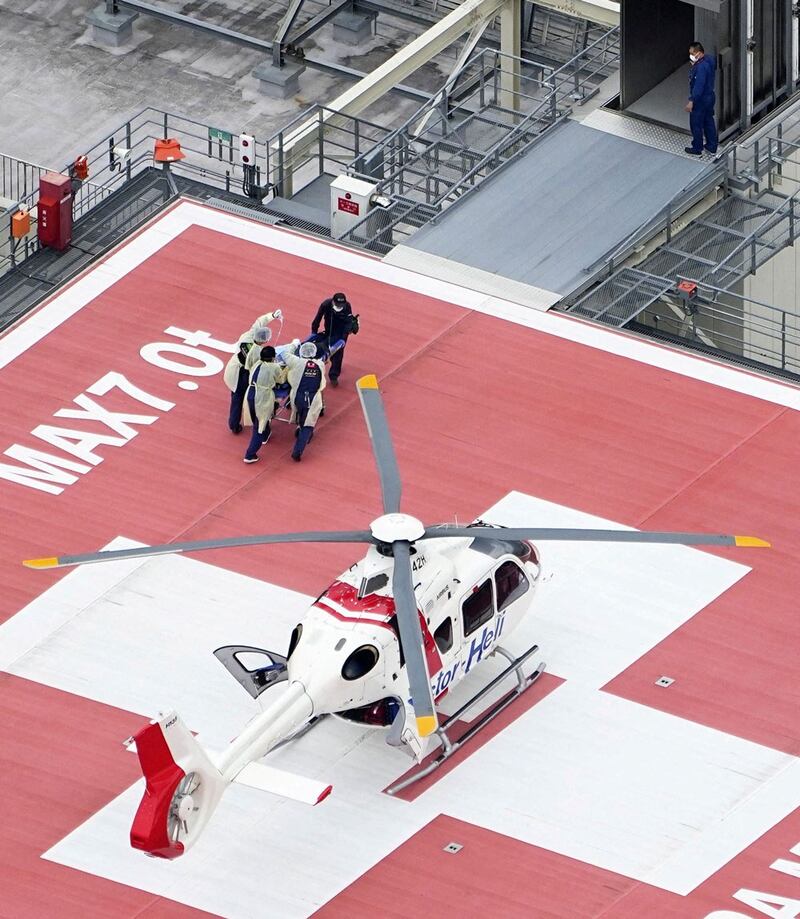
The CCP later launched a crackdown on "irrational" forms of nationalism at home, after thousands of people took to the streets in a wave of mass protests in Chinese cities that lasted for several weeks.
On the democratic island of Taiwan, where former president Lee Teng-hui was known to have a close relationship with Abe, President Tsai Ing-wen severely condemned the violence of the attack.
"Japan ... is an important democratic partner of Taiwan ... and former prime minister Abe was committed over the long term to deepening friendly ties between Taiwan and Japan," Tsai said.
A similar statement was issued by the office of former president Ma Ying-jeou.
Ko Wen-je, chairman of the Taiwan People's Party, said Abe's death was "a great loss for Taiwan-Japan relations."
Praise from Tibetans, Uyghurs, Southeast Asian leaders
In contrast to China, Tibetans and Uyghurs expressed grief for Abe and gratitude to him for championing their causes as people living unwillingly under oppressive Chinese rule.
The Dalai Lama wrote to Abe's widow Akie Abe offering his condolences.
"I am deeply saddened to hear that my friend, Mr. Abe Shinzo has passed away following a gunshot attack this morning," the Tibetan exiled spiritual leader wrote. "I pray for him and offer my condolences to you and members of your family."
"As you know, your late husband was a steadfast friend of the Tibetan people. I very much appreciated his friendship and support of our efforts to preserve our rich Buddhist cultural heritage and identity," the letter said.
>>Shinzo Abe: A retrospective in photos
The Germany-based World Uyghur Congress (WUC) expressed shock at the killing of Abe, calling him a "genuine ally of the Uyghur people, by listening to their voices and defending the cause in international fora."
WUC President Dolkun Isa said Abe "always inspired great values, and he was a fervent supporter of the Uyghur cause, before and during his time as Prime Minister of Japan."
Further afield in Southeast Asia, leaders remembered Abe for his active diplomacy in the region that helped balance China's growing influence.
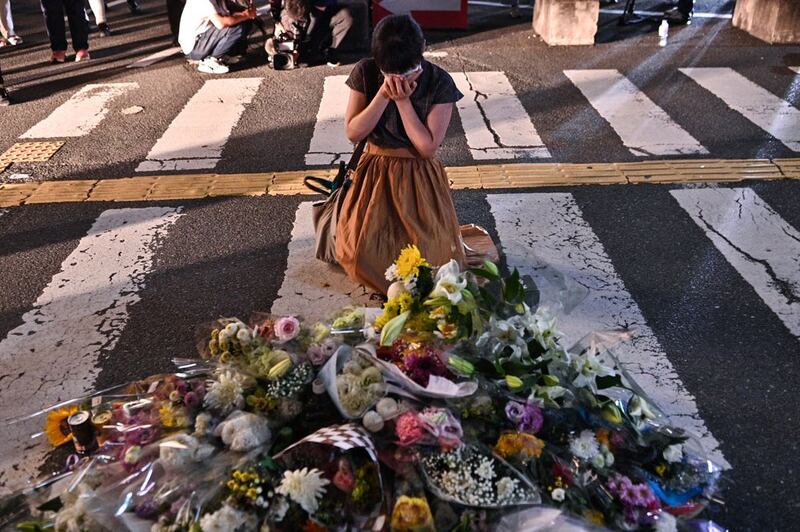
In strife-torn Myanmar, both the military junta that took power in a February 2021 coup and the shadow administration formed by members of the deposed civilian government hailed Abe as a friend to the Southeast Asian country.
"Myanmar's people will never forget the support and help which Mr. Abe offered to us. The people of Myanmar stand in solidarity with the people of Japan during this time of sorrow,” said Zin Mar Aung, foreign minister of the National Unity Government.
Military junta spokesman Maj. Gen. Zaw Min Tun, speaking before Abe's death was announced, said the regime "denounced the act" and was "deeply shocked.".
"Former Prime Minister Abe is an old friend and good friend of Myanmar," he said.
Cambodian Prime Minister Hun Sen expressed grief for Abe, who he called a ""a long-time good friend of mine and Cambodia."
"I was extremely shocked and deeply saddened to learn about the passing of His Excellency Abe Shinzo, resulting from the daylight assassination."
Abe, he said, "was an outstanding Japanese statesman who had been widely acknowledged and praised for his able leadership to move Japan forward and for his active contribution to peace, stability and prosperity in the region and beyond."
Philippine President Ferdinand Marcos Jr. voiced “shock and deep sadness” at Abe’s death and sent condolences to his family and the Japanese people.
“He was a devoted friend and a supporter of the Philippines, and it was during his leadership that the Philippine-Japan relations truly flourished,” he added.
Indonesia’s Foreign Minister Retno Marsudi said Abe “will be remembered as the best role model for all” in a message of condolences.
“It is with utmost grief that I mourn the passing of a great friend,” said Thailand’s Prime Minister Prayuth Chan-o-cha.
“If there could be any consolation to this senseless tragedy – it is the fact that Prime Minister Abe made his beloved nation and the world a better place with his lifelong dedication to public service,” he added.
Malaysian Prime Minister Ismail Sabri Yaakob said Abe “had played an important role in strengthening the ties between Malaysia and Japan” while foreign minister Saifuddin Abdullah noted that as prime minister, he had “visited Malaysia three times and played a key role in advancing and diversifying further bilateral relations with Malaysia.”
In Bangladesh, which said it will observe a day of state mourning on Saturday in Abe’s memory, foreign minister A.K. Abdul Momen said "Shinzo Abe was a close friend of mine and he was also a friend of Bangladesh.”
State media in Vietnam carried Abe's killing as top news, publishing photos of Hanoi's top leaders meeting Abe, who had stepped up Japanese diplomacy in Southeast Asia and cultivated ties with Vietnam as a counter to China.
Prime Minister Pham Minh Chinh expressed sorrow to Japan and to Abe's family and appreciation for the support Abe extended to Vietnam, including his forging of the comprehensive strategic partnership between the two countries.
In Laos, state media also reported Abe's death, while the government had yet to release any reaction on Friday.
Translated and edited by Luisetta Mudie. Additional reporting by RFA Burmese, Khmer, Lao, Tibetan, Uyghur and Vietnamese, and by BenarNews, an RFA-affiliated online news outlet.
